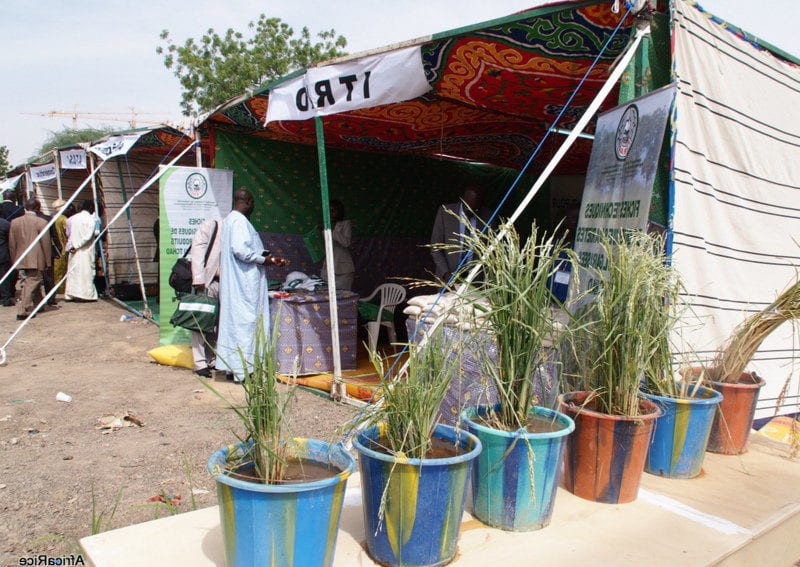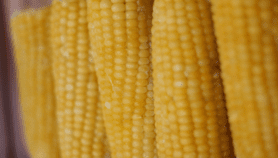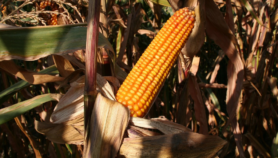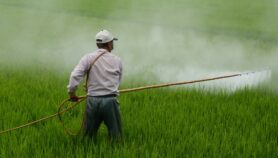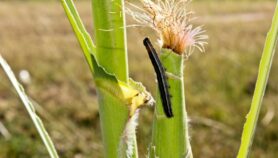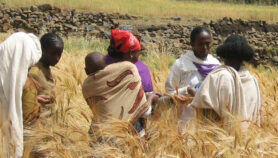Send to a friend
The details you provide on this page will not be used to send unsolicited email, and will not be sold to a 3rd party. See privacy policy.
[COTONOU] A group of rice breeding experts has agreed and adopted six new rice varieties under the ARICA (Advanced Rice in Africa) label to help boost yields.
The announcement was made during the 2014 AfricaRice Science Week and Global Rice Science Partnership-Africa Science Forum held last month (24-27 February) at the Africa Rice Center (AfricaRice) headquarters in Cotonou, Benin.
The experts, who were convened by AfricaRice, say the varieties were selected and labelled ARICA because they are tolerant to cold, salinity and iron toxicity.
“With these varieties, small[holder] farmers can increase their production.”
Moussa Sié, AfricaRice
According to the Kenya-based African Agricultural Technology Foundation, countries in Sub-Sahara Africa spend more than US$1.7 billion a year to import rice partly because of insufficient production.
“With these varieties, small[holder] farmers can increase their production,” says Moussa Sié, a senior breeder at AfricaRice in Benin who coordinates the Rice Breeding Task Force in Africa, a group with a goal of creating new rice varieties for Africa.
Sié adds that the new varieties could represent at least 40 per cent of the increase in rice productivity.
The six new ARICA varieties were nominated among 41 varieties proposed by the task force, Sié notes.
According to a statement from AfricaRice, the new varieties were selected through the project Stress-Tolerant Rice for Africa and South Asia (STRASA). The STRASA project develops stress-tolerant rice through both conventional plant breeding and molecular breeding techniques.
AfricaRice and the International Rice Research Institute are implementing STRASA in partnership with national rice programmes in 18 African countries — including Burkina Faso, Gambia, Ghana, Guinea, Mali and Senegal — through funding from the Bill and Melinda Gates Foundation.
“This year, we asked all breeders to make proposals for nominating ARICA varieties and each country has made proposals and criteria,” says Sié. “Breeders are not just creating varieties; they must certify varieties. They must [also] have the seed and make the seed available for the farmers.”
Inoussa Akintayo, a researcher and AfricaRice resident representative in Liberia, says the new varieties could help farmers deal with the right choices in rice production based on ecological zones and consumer tastes.
Akintayo tells SciDev.Net: “Some people think that it is not worthwhile to establish labelling varieties because it will create problems for farmers, but I think the opposite… With enough variety in the basket, everyone can choose what they want”.
Abdoulaye Sawadogo, a rice seed producer and president of Burkina Faso National Union of Seed Producers, notes that the ability of the new varieties to be tolerant to stresses could motivate farmers to adopt them.
“These new varieties have come to give new hope to the producers of the world, particularly those in Africa suffering because of these different stresses," Sawadogo says, adding that the varieties could also help farmers adapt to climate change.
This article has been produced by SciDev.Net's Sub-Saharan Africa desk.


